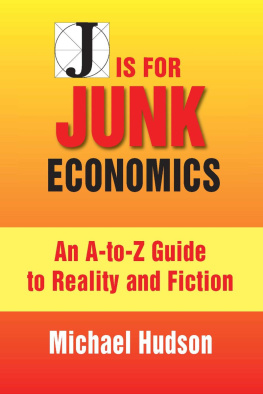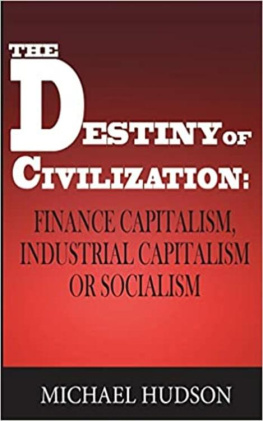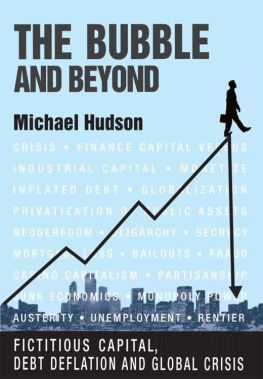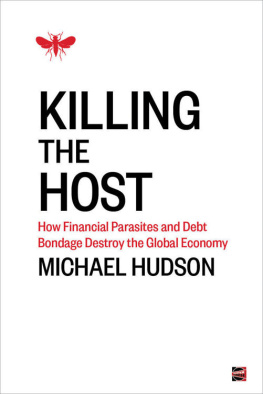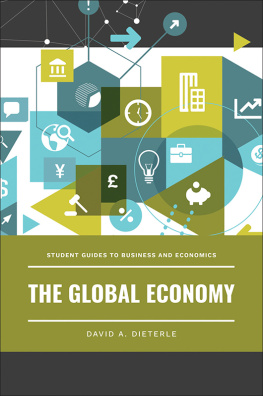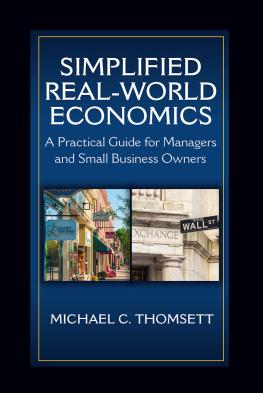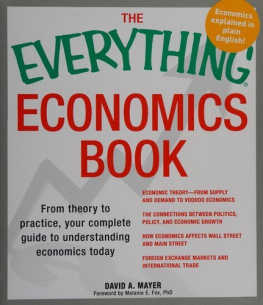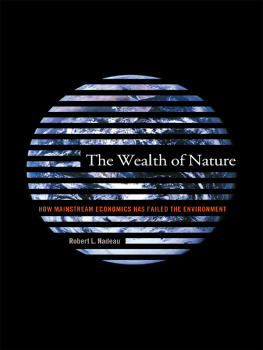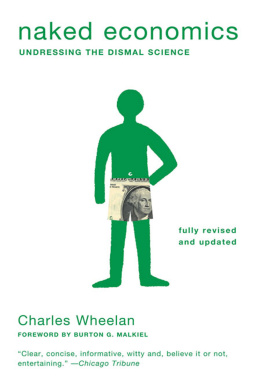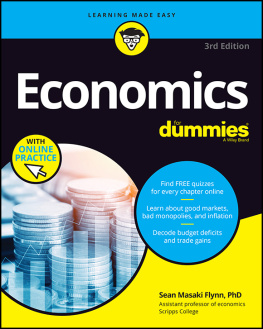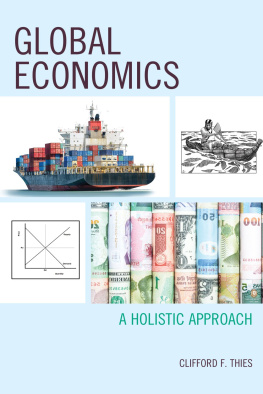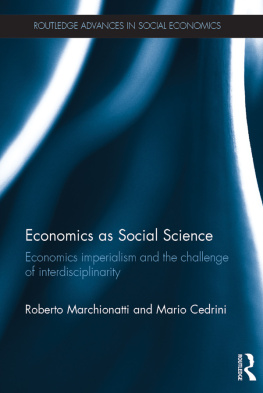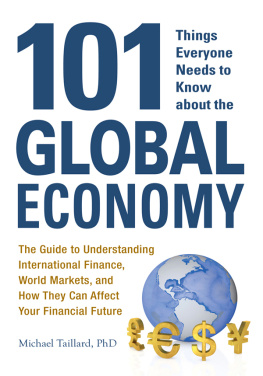2017 Michael Hudson / ISLET-Verlag
First Edition January 2017
eBook Edition May 2017
www.michael-hudson.com
www.islet-verlag.de
All rights reserved. No part of this publication may be reproduced or transmitted in any form by any means without written permission of the publisher, except for brief quotations in critical reviews or noncommercial uses as permitted by copyright law when credit is given.
Books are available at quantity discounts for events by contacting the publisher at michaelhudson.com . Professor Hudson is available for consulting and speaking engagements .
Although the author and publisher have made every effort to ensure that the information in this book is correct, they do not assume, and hereby disclaim, any liability to any party for any loss, damage or disruption caused by errors or omissions, whether such result from negligence, accident or any other case.
Set in Times New Roman and Baskerville boldface.
Design and typesetting by Edit/Design Productions.
Charts and tables by Cornelia Wunsch and Lynn Yost.
The Miracle of Compound Interest illustration courtesy Nigel Holmes.
Rosetta Stone (British Museum) AdobeStock.
Hudson, Michael, 1939- J is for Junk Economics: A Guide to Reality in an Age of Deception (eBook) Michael Hudson ISBN: 978-3-9818260-0-5
Companion to KILLING THE HOST by Michael Hudson.
A-TO-Z VOCABULARY GUIDE
(Section heads)
LIST OF ILLUSTRATIONS
Page numbers are provided for reference to the print version of the first edition.
p.46
p.61
(illustration) p.62
p.71
p.100
(graph) p.179
(diagram) p.194
(photo) p.203
(diagram) p.203
(graph) p.205
(graph) p.218
(chart) p.233
(graph) p.246
(chart) p.313
(chart) p.315
(chart) p.317
(photo) p.349
FOREWORD:
Economies and Economic Theory at the Crossroads
The 2008 banking and junk mortgage crisis saw the United States and Europe save banks and bondholders, not their economies. While governments spent trillions on bailouts and quantitative easing to save large creditors and speculators from losses on their bad loans and gambles, public and private infrastructure has been left to crumble and median wages are drifting down. Pension savings are being stripped, and pressure is rising to cut back Social Security.
Junk Economics is the cover story for all this. Claiming to be scientific, it is sponsored by financial interests to redistribute income and wealth upward, reversing the policies urged by the 19 th -century classical economists and Progressive Era reformers. Instead of progressive taxation, this ideology advocates shifting taxes off the One Percent onto the 99 Percent.
The effect is to suck money out of economies, while driving the middle class into debt, mainly to the One Percent. The resulting austerity is used as an excuse to privatize the public assets and natural resources that classical economists hoped would provide the tax base for administering the proper functions of government. Debt-strapped local and national governments are forced to sell off public infrastructure to pay creditors.
The pretense is that this will lower the cost of these basic services. But public infrastructure is being turned into opportunities for new owners to charge monopoly fees for themselves, resulting in a loss of affordable basic services. In the United States, compulsory privatized Obamacare is squeezing family budgets, while in Britain privatized railroads and water are among the most blatant examples.
Instead of leading to the promised leisure economy of abundance by freeing society from the legacies of feudalism and the hereditary privileges of aristocracies, bankers and monopolists, todays financial elites promote Junk Economics to increase their time-honored free lunch at societys expense. The debt overhead they create for the economy at large was well identified a century ago as avoidable. But todays financial class has idealized running into debt as the way for economies to get rich by inflating asset prices. Wages, profits and rents are being turned into a flow of interest payments that are growing exponentially. Meanwhile, national statistics divert attention away from how debt service is siphoning household and business income up to the top of the economic pyramid.
The suffering caused by the resulting financial austerity is unnecessary, not a result of any natural law. This reversal of the classical ideal of a free market a market free from land rent, monopoly rent and predatory finance has been promoted with a new vocabulary of Orwellian Doublespeak. For example, the term reform, as used today, means reversing the Progressive Era reforms that helped create a prosperous American and European middle class. It has been forgotten that what made the 20 th century great was progressive taxation and public infrastructure spending to lower the cost of basic economic services along with the New Deal and other legislation making money and finance a public utility instead of the predatory monopoly it has become.
To revive a more reality-based analysis and policy-making, this book aims to reconstruct economics as a discipline, starting with its vocabulary and basic concepts.
PREFACE
I drafted this dictionary and its accompanying essays more than a decade ago, for a book to have been entitled The Fictitious Economy . It did not find a publisher. My warnings about how debt leveraging would lead to a crisis hardly qualified as a timely how-to-get-rich manual of the sort that publishers consider to be popular economics books. Most readers were making easy money in the stock market and real estate. As stock prices recovered from their dot.com crash of 2000, home owners and investors were getting rich by debt leveraging, while pension funds remained solvent without having to increase employer or employee contributions.
Nobody wanted to hear that the gains couldnt be permanent while so much was there to be taken. Most of all, people did not want to hear that the financial sector that they thought was making them rich actually was undermining theeconomy and paving the road to the debt deflation that has made the economy poorer since the 2008 crash. Poorer, that is, for the 99 Percent whose incomes are now being paid to the One Percent as debt service and economic rent.
Flooding the stock market with debt-leveraged liquidity provided a propitious opportunity for President Bush and the Republicans to privatize Social Security . Their dream was to steer the monthly flow of wage withholding into the stock market, inflating a stock market boom along the same lines that Pension Fund Capitalism had been fueling since the 1950s. The aim was to generate soaring prices for speculators and a tidal wave of fees for Wall Streets money managers.
I met the editor of Harpers , Lewis Lapham, at a meeting of the Thorstein Veblen Society in 2004, and we discussed the need to warn against the idea that money could be made purely by financial engineering without building up the real economy. My cover story in 2005 on the proposed Social Security swindle reminded readers that stocks could fall as well as rise. The markets downturn that year dampened enthusiasm for privatization of Social Security, and a rising wave of scandals showed that Wall Streets money managers were more concerned with making fortunes for themselves than with helping customers.
The FBI warned in September of 2004 that the greatest wave of financial fraud since the 1920s was underway, but its fraud staff was cut back and assigned to anti-terrorist duties in the wake of 9/11. Banks lent money on increasingly reckless terms, selling the loans to customers who believed that the creation of sophisticated options trading meant that risk no longer existed. The reality was that risk was transferred to the proverbial suckers who lacked sufficient training in mathematical statistics to realize that someone would have to bear the loss from loans that could not be paid.
Next page
